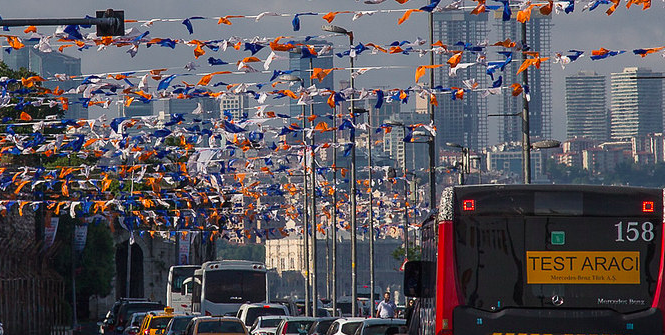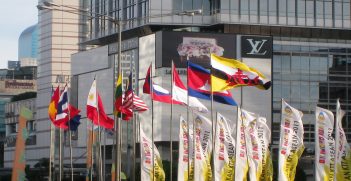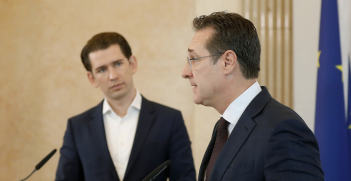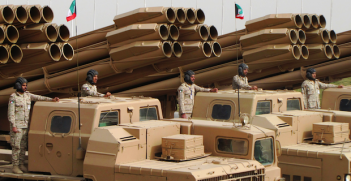Turkey - The Results Are In: What Now?

The results of Sunday’s parliamentary elections in Turkey show AKP lost its majority in the parliament after 13 years in power.
The AKP achieved approximately 41% of the vote which translated into 256 seats, 20 seats short of the absolute majority required to form a government. The main opposition parties CHP (25%) and MHP (16%) have hardly any cause for celebration either, as they only achieved negligible increases, if any, compared with the last election in 2011. The winner is, by far, the Kurdish backed HDP, with about 13% of votes, looking at 82 seats in the parliament, moving well and truly into the mainstream political arena as a power to reckon with, as it seems to have attracted some secular Turkish votes as well.
The results would usually take about 10 days to be confirmed officially to allow for any objections or recounts. This will also allow different combinations of coalition governments to be negotiated and debated. Although it is not uncommon for politicians to backflip on some of their election promises, all three opposition parties have ruled out a coalition with AKP as unthinkable. All three can easily create a coalition to at least make some of the changes in the election system, bring to parliament some of the big corruption claims, reverse some of the changes in the judicial system and go to early elections within a year or two. The other consideration is how a potential coalition government that does not include AKP would work with President Erdogan in practical terms, as the leaders of the opposition parties even refuse to visit Erdogan in his newly-built 1000-room palace. Dwarfing the White House and Buckingham Palace, they claim that it has been illegally built on land under conservation and represents his authoritarian rule. Whether some of the toilet bowls were gold-plated or not was the subject of one of the most fierce election fights between Erdogan and the leader of CHP, Kemal Kilicdaroglu. Some even flippantly suggest that the first act of a coalition government should be to pass legislation that would force Erdogan to vacate the new palace and move back to the old palace, which housed all the previous presidents including Ataturk. This would be an enormous undertaking given the size of Erdogan’s current residence.
The result of this extraordinary election is also, no doubt, a huge loss for the current president Erdogan, who worked very hard in the final stretch to the polls to attract unhappy AKP voters back and sell his plans for a presidential system, which many feared he would quickly turn into an authoritarian rule. Hence, there has been a deep sigh of relief from many Turkish secular voters, who commented that ‘Turkey returned from the edge of the cliff’. Those plans will be shelved, at least for a while, as all parties other than AKP vehemently oppose it. It will also definitely come as a relief for many AKP members and supporters who actually do not believe in a presidential system. As the main opposition parties indicated they would like the 10% threshold, a legacy of the Army drafted 1982 constitution, which served AKP well, to be pulled back to 5%, this is likely to occur in any combination of coalition with or without AKP. Millions of votes, currently simply discarded, will also be thrown into the mix and the chances of AKP ever achieving a change in the system will be greatly diminished, if not entirely impossible. It would not be surprising if this result for AKP and Erdogan leads to some rare dissent within AKP and a search for alternatives, such as a return of Abdullah Gul, the previous president, who remains very popular. He differed with Erdogan on a number of key issues, including the change to presidential system.
This election has been unique for several reasons.. The majority rule by AKP, without proper checks and balances, The party’s attempts at social engineering in all sections of life, and big setbacks in foreign policy, have lead to signs of an extraordinary ‘détente’, previously unthinkable, between the Turkish dominated MHP and the Kurdish dominated HDP. This is evident by a lack of any hostile rhetoric between the two parties during the election and even statements by some HDP leaders that they could work with MHP in a coalition, if it comes to that, but not AKP. Whether this could happen is yet to be seen, but it clearly helps ease ethnic tensions within Turkey.
This election was also unique because it was not fought over refugees, despite millions of refugees pouring into the country from the hotspots in Middle East, including approximately 1.8 million Syrian refugees alone. The sheer number of refugees dwarfs the figures trying to cross the Mediterranean into Europe and definitely makes the number of boat arrivals in Australia look minute. This just points to the significance of a stable Turkey politically and economically for refugees from neighbouring countries and the security of Western Europe as a buffer zone.
Whatever happens with the coalition talks in coming days, the real winner is democracy and secular life in this Muslim-majority country, in one of the most volatile regions in the world. That can only be good news for the region and the rest of the world in the current climate.
Sedat Mulayim is the Program Manager for The Translating and Interpreting at the School of Global, Social and Urban Studies at RMIT University. This article can be republished with attribution under Creative Commons Licence.





